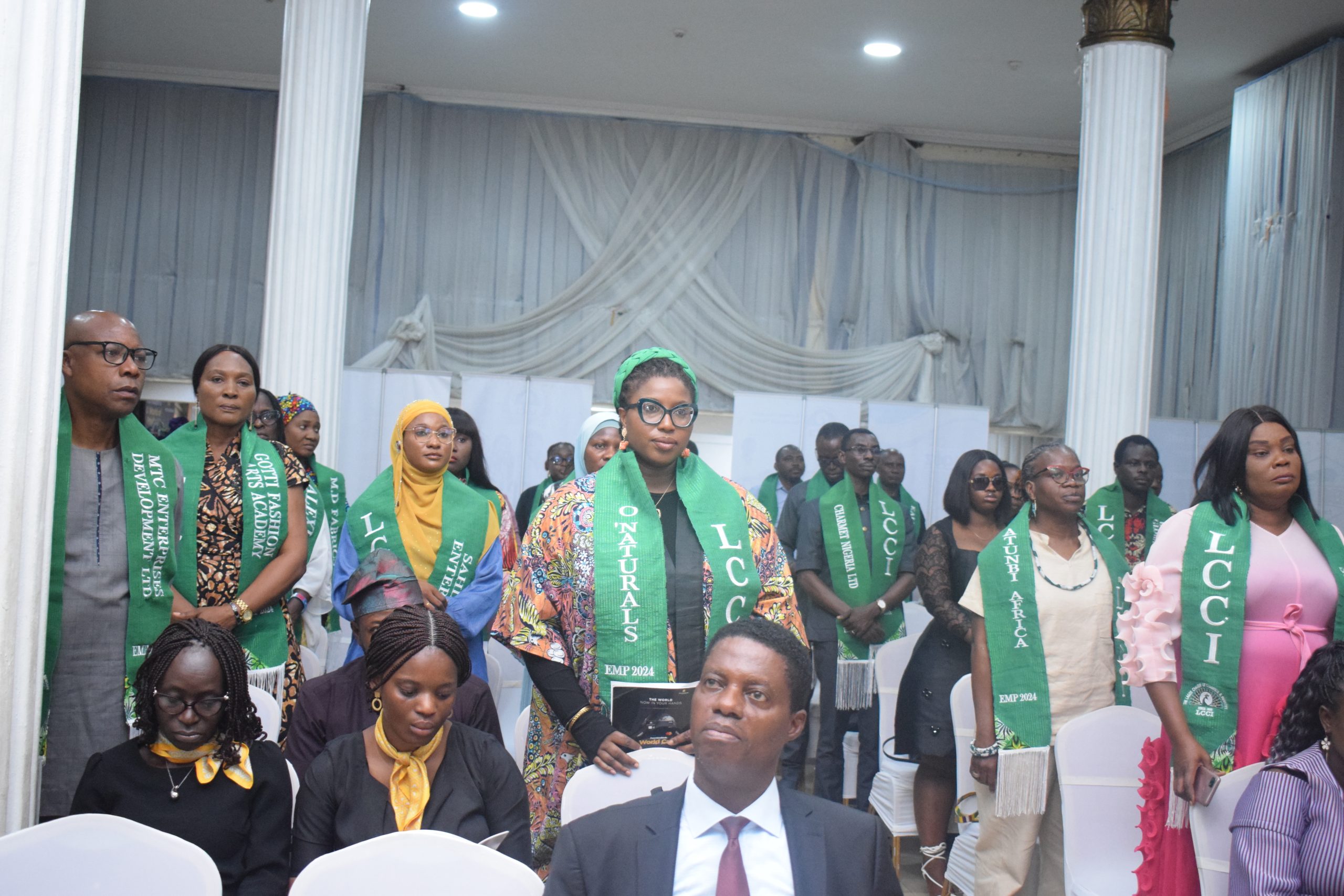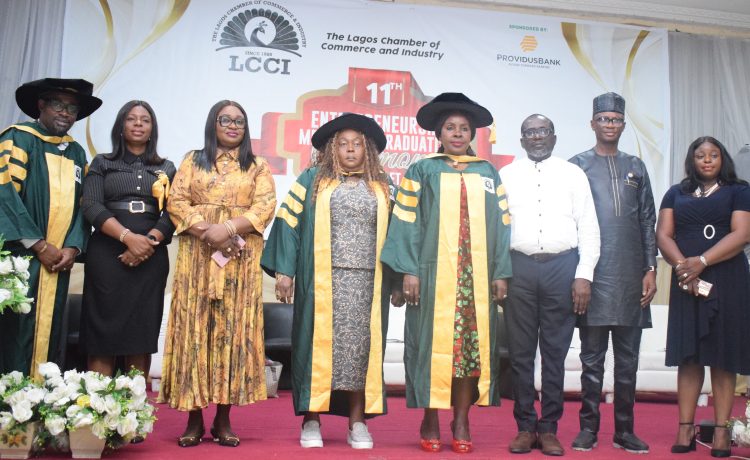A total of 106 individuals have successfully completed the Lagos Chamber of Commerce and Industry (LCCI) Entrepreneurship Mentoring Programme (EMP) and earned their certification. Additionally, 14 participants graduated with the LCCI-Lagos State University (LASU) Diploma in Entrepreneurship.

Mr. Gabriel Idahosa, the President of LCCI, while represented by Dr. Chinyere Almona, Director-General of the LCCI, emphasized the vital role of mentorship in shaping the future of Nigeria’s economy. The EMP is not just a corporate social responsibility initiative but also an investment in the socio-economic future of Nigeria, Idahosa remarked at the graduation ceremony in Lagos.
Since its inception, the programme has helped around 600 mentees develop key skills that contribute to Nigeria’s economic resilience, job creation, and innovation. These graduates are seen as pivotal to the growth of non-oil sectors, including manufacturing, agriculture, and digital services, which are expected to drive Nigeria’s economy forward in 2024.
In his speech, Idahosa highlighted the program’s thorough training, providing mentees with critical skills in areas like personal development, negotiation, business planning, and networking. These skills are essential in supporting the country’s Small and Medium Enterprises (SMEs), which represent approximately 48% of Nigeria’s GDP and employ a large portion of the national workforce.
The government’s push for entrepreneurship, supported by initiatives such as the Central Bank’s Anchor Borrowers Programme, aligns with the mission of LCCI. However, Idahosa stressed the need for more efforts to simplify business processes, enhance access to finance, and reduce trade barriers, which are essential for enabling the growth of the SME sector.
Mrs. Funlayo Bakare-Okeowo, Chairperson of the Board of Business Education Service and Training (BEST) Unit at LCCI, noted that this graduation marked the 11th edition of the mentoring programme, with this year’s cohort also being the first to receive LCCI-LASU entrepreneurship diplomas. She emphasized how the programme has contributed to fostering entrepreneurship in Nigeria, empowering young people to solve both local and global economic challenges.
Bakare-Okeowo also praised the support of Providus Bank, which played a significant role in scaling up the programme, along with other partners like the Bank of Industry (BOI) and Lagos State Employment Trust Fund (LSETF). This collaboration ensures that graduates have access to essential resources, such as loans, grants, and business networking opportunities.
As these graduates embark on their entrepreneurial journeys, the LCCI remains committed to nurturing the next generation of leaders, shaping the future of Nigeria’s economy, and promoting sustainable growth across the nation.







